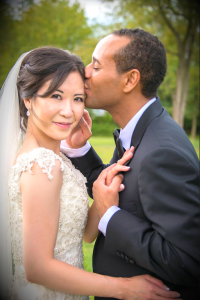 Ellen McDaniel-Weissler
Ellen McDaniel-Weissler
LaVale, MD
When my sister, a Peace Corps volunteer, went to serve her two years with the Corps in Chad, Africa, my parents realized that she was at an age when she might meet and fall in love with someone and want to get married. My father was a Lutheran minister and a long-time anti-segregation activist, who had been involved in the 1963 March on Washington, and had spent eight fruitless years (1962-70) trying to get his congregation in Washington, DC, to become racially integrated. My sister entered the Peace Corps in the late 1970s, when my dad was pastor of a small church in a little rural town in the mountains of Western Maryland. I remember clearly that my parents’ concern about my sister’s possible romantic involvements in Chad took an interesting turn — my distinct memory is of my father saying: “If she does fall in love, I would rather she’d marry a Black Christian than a White Muslim.” The religious aspects of the possibility mattered more to him than the racial ones — not because he had any great prejudice against Islam, but because, as a Lutheran pastor, he inevitably oped that a prospective son-in-law would share the faith in which his daughter had been raised. The attached photograph shows the results of my sister’s time in Chad — in 1979 my father performed the ceremony for her marriage to my brother-in-law of 35 years — a Black Chadian Muslim — with the full support of his small congregation, at our church in Cumberland, MD.







